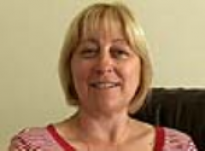Carol - Interview 18

Carol was diagnosed with DCIS in 2008, aged 51. She had a wide local excision and was happy with the care and treatment she received.
Marital status' Carol is a single carer and student. Ethnic background / nationality' White British
More about me...
Carol was very aware of breast cancer because her father had been diagnosed with it. He later developed secondary cancer in his lungs and died. Carol said that, at the age of forty, she was given a mammogram because of her father’s experience and, maybe because of the stress at that time, had an early menopause. She had been taking HRT and stopped taking it around that time.
Carol said she looked for more information about DCIS on the internet and found breast cancer websites and forums very helpful, though they could also be confusing because other women had such different experiences and diagnoses. She said she was grateful to have been invited for a routine mammogram and advised other women to attend.
Carol was interviewed for the Healthtalkonline website in 2008.
Before surgery, Carol stopped drinking, cut down on smoking, ate healthily and walked several miles a day.
Before surgery, Carol stopped drinking, cut down on smoking, ate healthily and walked several miles a day.
Carol was shown an area of micro-calcifications and told that those cells were precancerous.
Carol was shown an area of micro-calcifications and told that those cells were precancerous.
Carol's doctor reassured her that a mastectomy was unnecessary for the small area of DCIS she had.
Carol's doctor reassured her that a mastectomy was unnecessary for the small area of DCIS she had.
Carol was desperate to go home where she could sleep properly. She had vomited because of the anaesthetic and felt weak.
Carol was desperate to go home where she could sleep properly. She had vomited because of the anaesthetic and felt weak.
Although Carol's friends and family were overjoyed to hear she was clear, it took her two weeks to accept it and start getting back to normal.
Although Carol's friends and family were overjoyed to hear she was clear, it took her two weeks to accept it and start getting back to normal.
Carol found the breast cancer forums helpful but said that information on the internet could be confusing because everyone had different diagnoses.
Carol found the breast cancer forums helpful but said that information on the internet could be confusing because everyone had different diagnoses.
Carol found the biopsy extremely painful. The procedure took some time and left her with a lot of bruising.
Carol found the biopsy extremely painful. The procedure took some time and left her with a lot of bruising.
Carol felt she would have recovered quicker if she hadn't reacted to the anaesthetic. She felt that the physical recovery was quicker than the emotional.
Carol felt she would have recovered quicker if she hadn't reacted to the anaesthetic. She felt that the physical recovery was quicker than the emotional.

